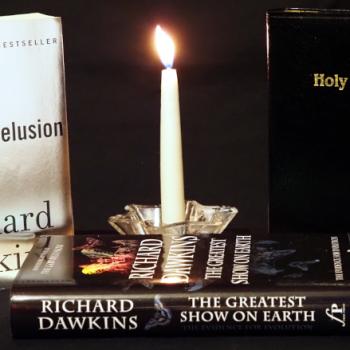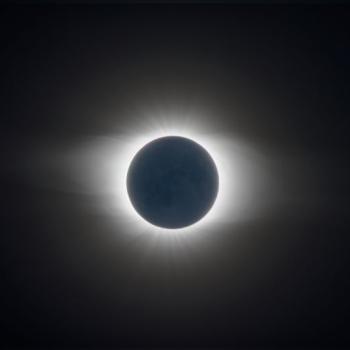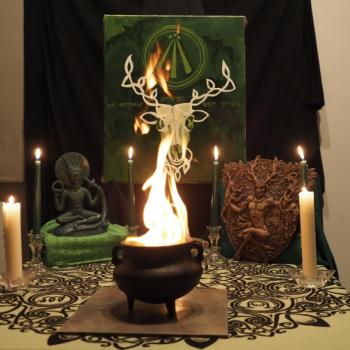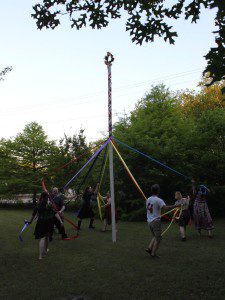 Many of us like to talk about how Paganism is a religion (or religions) of doing, not believing. Here on this blog and in other venues I’ve emphasized that if you do the right thing, I don’t care why you do the right thing. Doctrinal purity is not required to dance the Maypole – it’s not even required to participate in our devotional rituals.
Many of us like to talk about how Paganism is a religion (or religions) of doing, not believing. Here on this blog and in other venues I’ve emphasized that if you do the right thing, I don’t care why you do the right thing. Doctrinal purity is not required to dance the Maypole – it’s not even required to participate in our devotional rituals.
A religion of doing and not believing (or that de-emphasizes believing) is good, but it will only take you so far. Maybe that’s far enough for you, and if so that’s fine. But if you want to understand why you do what you do, or how doing this can lead to that, or if you want to try to figure out what it all means, then you’re doing to have to dig deeper. You’re going to have to draw some distinctions.
When I was much younger I had a business trip to Sweden (in January – there was about six hours of daylight each day). Even though I’m a monolingual American, I had no trouble traveling alone – almost everyone in Sweden speaks English. One night I was at dinner with my Swedish co-workers and the fish was especially good. I asked “what kind of fish is this?” And guy sitting next to me said “fish.” I said “yes, but what kind of fish? What species of fish?” He said a name in Swedish – of course, I didn’t understand that. Eventually the waiter brought out a restaurant translation guide and looked up the English name (haddock, if I’m remembering correctly after all these years).
The fish tasted great no matter what you call it. But if I wanted to be able to order it again, or if I wanted to look up where it’s found and whether or not it’s being overfished, I needed to know its name, in words I could understand.
Cathy doesn’t like fish. To her “fish is fish.” I like fish, and I like some better than others. I like haddock and cod better than tilapia or catfish. I love Alaskan salmon so much I can’t stand eating Atlantic salmon any more. For me, fish is most definitely not just fish.
Who’s right? I think we all recognize that’s a silly question. For Cathy, “fish” is all she needs to know. I want to know what kind of fish… and if it’s Alaskan salmon, I want to know if it’s Coho, Sockeye, or Chinook.
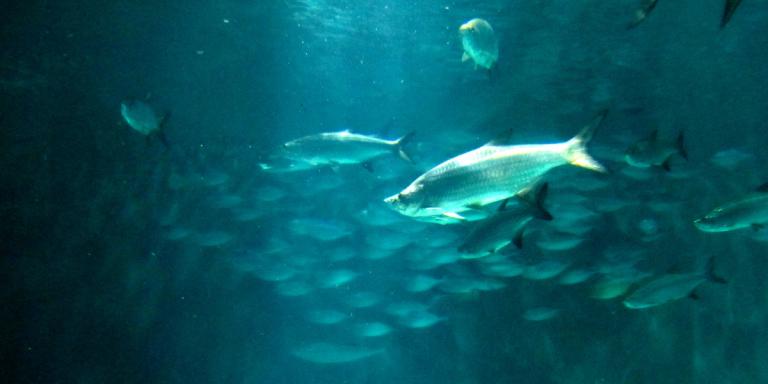 Whether we’re talking fish or religion, deep understanding requires drawing clear but often subtle distinctions between things that are very similar but not exactly the same. It requires precise definitions, and definitions are boundaries. Many Pagans react badly to boundaries, particularly if other people draw them. Many of us are more concerned that “nobody’s going to tell me what to think!” than with coming to a better understanding and appreciation of our religion.
Whether we’re talking fish or religion, deep understanding requires drawing clear but often subtle distinctions between things that are very similar but not exactly the same. It requires precise definitions, and definitions are boundaries. Many Pagans react badly to boundaries, particularly if other people draw them. Many of us are more concerned that “nobody’s going to tell me what to think!” than with coming to a better understanding and appreciation of our religion.
As we grow in spiritual depth, as we concentrate more and more on one of the Four Centers of Paganism, it becomes necessary to draw more boundaries and more precise boundaries. Not to declare some beliefs or practices “good” and others “bad” any more than haddock is empirically better than tilapia, but to say “this is different from that.” These differences may be subtle and they may unimportant to some Pagans, but to the devout practitioner they are critical to their continued spiritual growth.
With all that said, let’s go back to talking about polytheism.
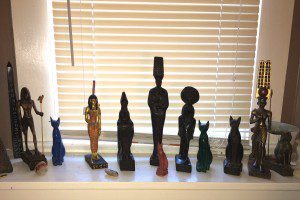 Poly means many, and polytheism is the acknowledgement of and engagement with many Gods. But not all ideas about the many Gods are the same. Not everyone who says “I believe in many Gods” means the same thing. Arguing about who’s right is useless, but understanding the difference is crucial.
Poly means many, and polytheism is the acknowledgement of and engagement with many Gods. But not all ideas about the many Gods are the same. Not everyone who says “I believe in many Gods” means the same thing. Arguing about who’s right is useless, but understanding the difference is crucial.
This is proving to be a hard distinction to draw with rhetoric alone, so I’d like to offer an example. Go read this piece by Jason Mankey. Jason is trying to help a friend and fellow Pagan find the right God to include in his ritual. Here’s an excerpt:
The deities we call should make sense theologically and mythologically. In the scenario outlined above the presence of the god Pan doesn’t make theological sense. Pan is not a god of the harvest, and while it’s true that his father Hermes shepherds souls, that’s not something that’s ever been associated with Arcadia’s favorite goat-son. A deity is going to bring their attributes to the party (or ritual) and you want those attributes to line-up with what’s going on in ritual.
Is this polytheism? Of course it is. It acknowledges that there are many Gods and they aren’t interchangeable – they’re not all the same. It’s thoughtful and respectful. Anybody who says Jason Mankey isn’t a polytheist isn’t paying attention.
Now go read this post about a ritual Denton CUUPS did in honor of Cernunnos.
Then the drumming started and we began calling His name. At that point the script stopped. As I’ve mentioned on numerous occasions, I’m not comfortable with unscripted rituals. I like order and predictability. But I serve a God who is wild and free, and He only tolerates my obsessive orderliness so much.
His presence, which had been mild but undeniable since we started setting up (what, you think a Forest God is going to sit quietly outside the door till He gets a proper invitation?) became overwhelming. Someone shouted. Someone got up and began to dance. Then another got up, and another, and another. Before long we had a whole line of people dancing, spinning, and chanting around the altar.
Cernunnos! Cernunnos! Cernunnos!
Do you see the difference? Do you feel the difference? This isn’t finding the right God for a seasonal ritual or a magical working. This is acknowledging a God as a person, honoring Him, and facilitating an ecstatic experience of Him. The first includes the Gods – the second puts the Gods front and center.
The issue isn’t which approach is right, or even which approach is better. The issue is recognizing that the two approaches are different. I’m uneasy with a “plug and play” approach to Gods, but if someone else does it, that’s between their Gods and them. There are many Gods and many people, so there are many ways the two will engage and interact.
Why is this important? If you walk into a restaurant, do you really want the waiter to say “it’s all fish”? The Pagan and polytheist communities have a regular influx of seekers who have lived their entire lives in a culture where it’s assumed there is one God – at most. When they start looking inside the Big Tent of Paganism, most don’t know what they’re looking for.
 Perhaps they’ve had a first-hand experience of one or more of the many Gods and they’re looking for some context to help them understand it. Perhaps they’re trying to get away from an abusive religion. Perhaps they’ve always felt something special in Nature, or when reading mythology, or when looking at ancient sites and artifacts.
Perhaps they’ve had a first-hand experience of one or more of the many Gods and they’re looking for some context to help them understand it. Perhaps they’re trying to get away from an abusive religion. Perhaps they’ve always felt something special in Nature, or when reading mythology, or when looking at ancient sites and artifacts.
Many of these people are looking for the Gods. As a Druid and a priest, it’s not my place to tell them how they should approach the Gods. But it is my responsibility – and the responsibility of every other Pagan and polytheist – to help them distinguish between the various approaches so they can understand the differences and find the one that calls to them.
The current problem is that we don’t have clear, widely understood language to differentiate between the very similar but critically different kinds of polytheist fish. A couple years ago the term devotional polytheist started to be used to describe the Gods-centered approach, and Galina Krasskova wrote a very good book with that title to explain and teach its practices. But the term doesn’t appear to be sticking – I don’t see it in use regularly, especially by people who could legitimately claim it as their own.
I suspect there’s a fear that if we qualify our polytheism, some other polytheism will come to be seen as normative. In theory every polytheism should be named or otherwise distinguished, because every polytheism I know or know of adds beliefs and practices to the affirmation of the genuine existence of many Gods.
I don’t have a solution to propose, and I absolutely do not like fighting over ownership of terms. But in the interests of clarity and for the sake of those who are seeking, we desperately need to find ways to recognize and appreciate the differences in how different people understand and interact with the many Gods.
Fish is not just fish.








